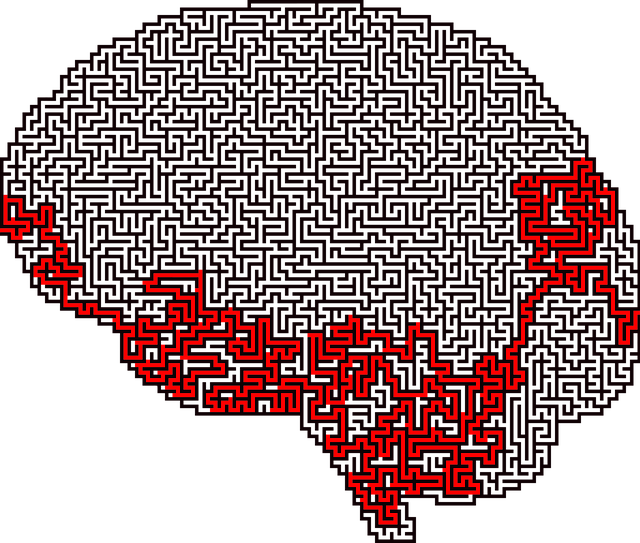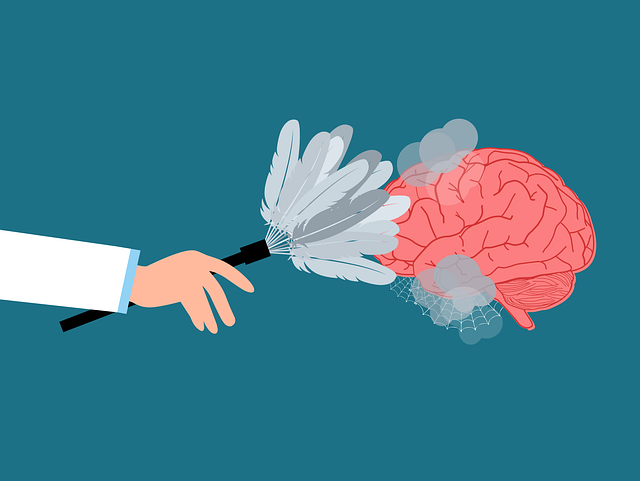Mental wellness groups in Highlands Ranch play a vital role in supporting individuals facing cancer-related challenges, offering a safe and supportive environment for expression and connection. Through active listening, reflective questioning, structured discussions, peer support, creative exercises, and goal-setting, these groups enhance therapeutic experiences, manage mood, improve self-esteem, and cope with stress. Specialised therapy sessions, trauma support services, and healthcare provider training cater to diverse patient populations, while risk management planning ensures professional well-being. These initiatives ultimately enrich group dynamics and support Highlands Ranch residents in navigating cancer diagnoses.
In today’s digital era, mental wellness group facilitation plays a crucial role in fostering supportive communities like those found in Highlands Ranch. This article delves into effective techniques for leading engaging and therapeutic sessions, focusing on creating safe spaces for individuals to navigate life’s challenges, including specific strategies tailored to address cancer issues prevalent in the Highlands Ranch community. By exploring these methods, facilitators can enhance mental wellness outcomes and revolutionize support networks.
- Understanding Mental Wellness Groups: Creating a Supportive Environment
- Facilitation Techniques for Engaging and Therapeutic Sessions
- Addressing Cancer Issues: Specific Strategies for Highlands Ranch Communities
Understanding Mental Wellness Groups: Creating a Supportive Environment

Mental wellness groups play a pivotal role in supporting individuals navigating various challenges, including those affected by cancer issues in Highlands Ranch. When facilitating such groups, creating a supportive environment is paramount. This involves fostering an atmosphere where every member feels safe to express their feelings and experiences without fear of judgment. Group facilitators should encourage active participation through open-ended questions and ensure confidentiality to build trust.
A crucial aspect is normalizing the shared struggles, promoting empathy, and celebrating each person’s unique journey. Techniques like active listening, reflecting emotions, and reinforcing positive feedback help in managing mood, improving self-esteem, and effectively dealing with stress. This supportive setting not only enhances participation but also facilitates more meaningful connections among group members, ultimately enriching their therapeutic experience.
Facilitation Techniques for Engaging and Therapeutic Sessions

In facilitating mental wellness groups, engaging and therapeutic sessions require a blend of dynamic techniques that foster open communication and create a safe space for members to explore their emotions. Techniques such as active listening, reflective questioning, and structured discussions enable facilitators to guide participants through introspective journeys, enhancing emotional regulation and self-awareness. By encouraging peer support and sharing experiences, groups can cultivate a sense of belonging and understanding, which is particularly beneficial in addressing Highlands Ranch cancer issues therapy.
Additionally, incorporating activities that promote self-esteem improvement and confidence boosting can significantly enhance group dynamics. Facilitators can employ creative exercises, role-playing scenarios, and goal-setting discussions to help members challenge negative thought patterns and build resilience. These techniques not only support mental wellness but also empower individuals to navigate life’s challenges with renewed optimism and fortitude.
Addressing Cancer Issues: Specific Strategies for Highlands Ranch Communities

Highlands Ranch, like many communities, faces unique challenges when it comes to mental wellness, particularly in addressing cancer issues. The impact of a cancer diagnosis extends far beyond physical health, significantly affecting an individual’s emotional and psychological state. Facilitators play a crucial role in supporting these individuals through specialized therapy sessions tailored to their needs.
Specific strategies can be employed to cater to the Highlands Ranch community. Trauma support services are invaluable in helping patients cope with the trauma associated with cancer. Additionally, healthcare provider cultural competency training ensures that professionals are equipped to handle diverse patient populations, considering various cultural and socioeconomic factors. Risk management planning for mental health professionals is also essential, providing a framework to navigate sensitive topics like cancer while prioritizing both patient care and professional well-being.
Mental wellness group facilitation plays a pivotal role in fostering supportive communities, especially in addressing specific challenges like cancer issues in Highlands Ranch. By employing engaging and therapeutic techniques, facilitators can create an environment that encourages healing and connection. Understanding the unique needs of Highlands Ranch residents, these strategies offer a tailored approach to mental wellness support, ensuring that those navigating cancer and its impact receive the necessary care and connection in their own backyard.














